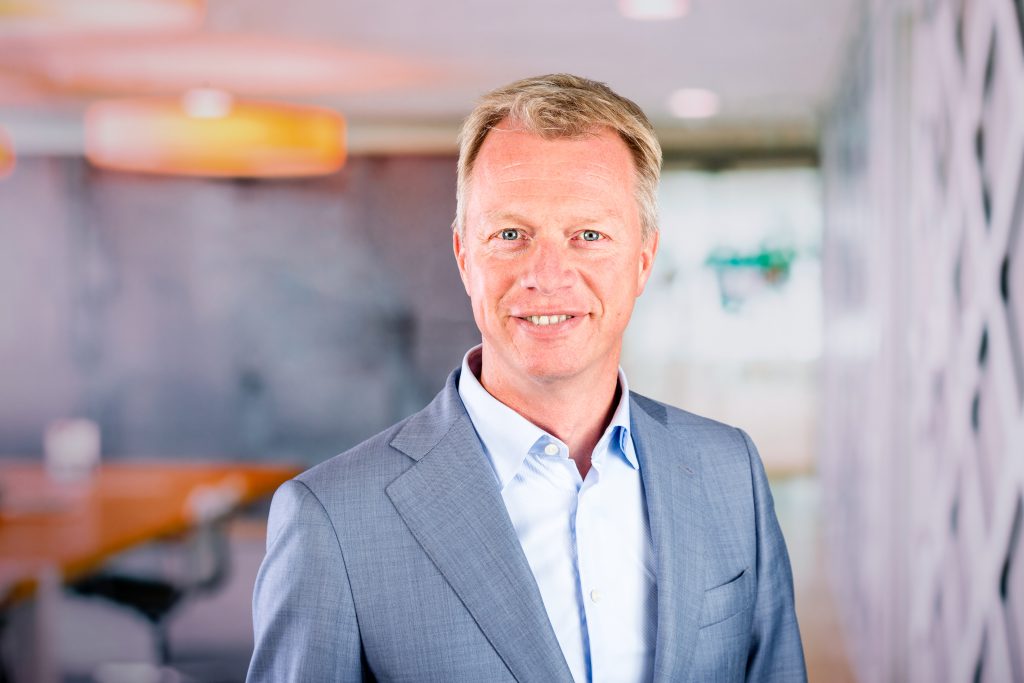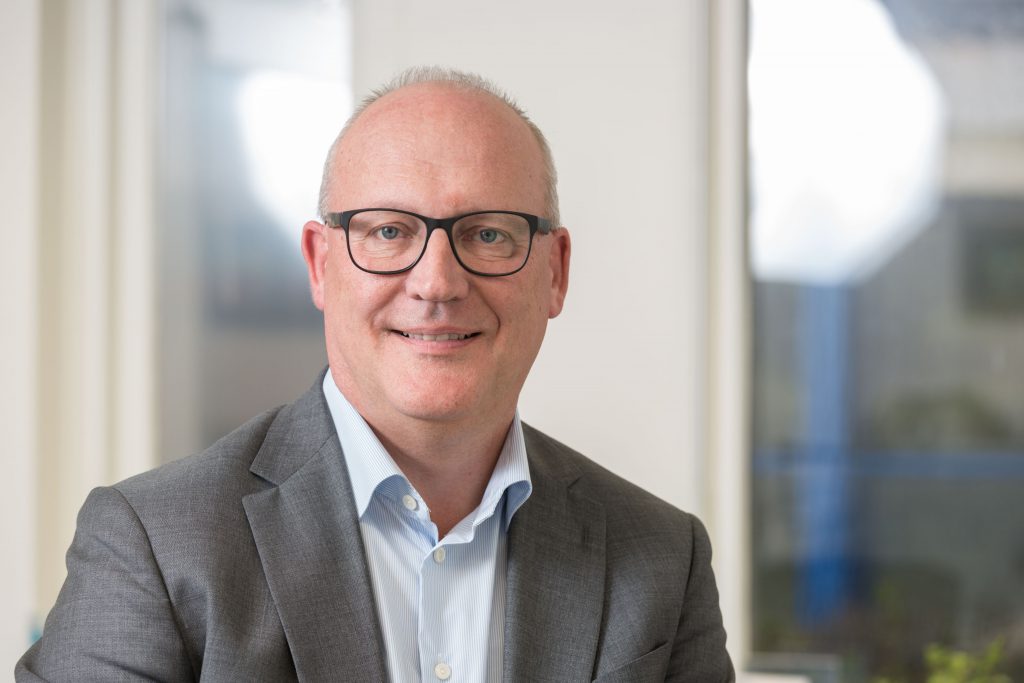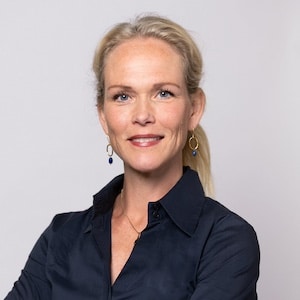Board Talk: ‘Only invest in companies that operate sustainably’
Industry and mobility together cause a large part of the CO2 emissions in the region. And so the energy transition is high on the agenda at Tata Steel and LeasePlan, say Board members Ernst Hoogenes and Erik Henstra. "The region has the right scale to get started with this."
How does the current corona crisis affect both organizations?
Hoogenes: “Demand for steel has fallen sharply in some sectors, so our business is being affected. Despite the corona crisis, our factories have to keep running. We have therefore made strict working agreements for the people in the factory and 2,000 people work from home. On the other hand, you can see that innovations are also taking place as a result of these new circumstances. A good example are the new models that we now use to predict the processes of our blast furnaces, which now run at a lower level. Thanks to those models we now have an incredibly low carbon consumption and therefore a much lower CO2 emission. Another nice side effect is that our disease rates are much lower. Because so much more attention is paid to hygiene, there are also far fewer other infections. ”
Henstra: “We also have a lot less absenteeism. I think that there is also a factor that you are less likely to report sick when you work at home. In addition, we have also seen in the past that economic uncertainty also results in fewer sick reports. Until now, we have not had a huge impact: we mainly have long-term contracts with our customers. We have made certain agreements with some customer groups. For example, we have made arrangements for taxi drivers to temporarily terminate their contracts or bridge this period properly. ”
Hoogenes: “I think this crisis will cause traffic over longer distances to decrease, because we will be doing much more digitally. If we mainly continue to drive shorter distances, I can imagine that the demand for electric and hybrid cars will increase. Do you see that too? ”
Henstra: “The demand for electric transport has increased significantly recently. We have also challenged our customers to do so. Now you see that, due to all the uncertainties, companies are more often choosing to continue a contract instead of a new one. to close. ”

Erik Henstra, Managing Director LeasePlan Netherlands
LeasePlan’s ambition is to have a fully emission-free fleet by 2030. A nice ambition. How did it come about?
Henstra: “The thought used to be: we are a lease company, we do what the customer wants. But you cannot maintain that if you have the largest fleet in the world and see the impact mobility has on air quality and congestion. We have to solve this together. That is why we formulated that goal three years ago. Above all, it takes time to achieve it; we don’t have to invent complex, new and clean technologies like Tata Steel, the car manufacturers do that for us.
Our task now is to convince our customers to opt for cleaner transport. To set a good example, we started with our own employees: they now all drive electrically. Getting that done went with ups and downs. Not everyone was immediately enthusiastic and the classic car policy, which entitles you to different levels of cars, had to be overhauled. But we can now share our lessons with our customers and with the other thirty countries where we operate. We can roll out what we are trying out here. ”
“Our job is to convince customers to prefer cleaner transport.”
Ernst, Erik has already mentioned it: for you, the energy transition is mainly about inventing new technologies. Can you tell us something about that?
Hoogenes: “To give you an idea: about twenty years ago we started thinking about HIsarna, which is a completely different way of making steel. One hundred million euros has already been invested in this. There has been a pilot plant in IJmuiden since 2011. This is now temporarily halted due to the crisis and NOx licensing issues, but we hope to restart it soon. With HIsarna we can make steel from ores with 20 to 50 percent less CO2 emissions. Another advantage is that the CO2 that comes out is much purer. We can then capture it and use it in greenhouse horticulture, for example.
We are also investigating ways to capture and store the CO2, for example in empty gas fields. Then you might say: but then you have not lost it. But if other technologies are properly developed in the future, we can use that CO2 again for, for example, the production of fuels or other chemical hydrocarbon compounds. Of course, steel is also very suitable for reuse. Eighteen percent of the steel we produce now comes from scrap and that will only increase in Europe in the future. In this way, we are working towards even more circular production. All these steps together should result in being completely CO2 neutral by 2050. I am convinced that it will work. ”
“All the steps we are taking now must lead to being completely CO2 neutral by 2050. I am convinced that we will succeed.”
Henstra: “I think the development of hydrogen in the Netherlands is going quite slowly. That in itself correlates well with the fact that there is still little green hydrogen and few hydrogen cars. Much more is invested in neighboring countries. Can the industry here also not produce more hydrogen as a by-product of their regular production? How do you view that?
Hoogenes: “We are already working with other parties on the construction of a 100MW hydrogen station on our site. And we could expand it into mega factories, but then you are dependent on a lot of electricity, which you naturally want to generate green. still about ten to twenty years before we get there, I think. ”

Ernst Hoogenes (CTO Tata Steel Europe)
What role do you think the MRA should play in the energy transition?
Hoogenes: “The region has the ideal size to find solutions. So it was at the beginning of July a regional plan for the North Sea Canal area presented. The industry must become cleaner, there is no other way. But I think that all parties can make a difference on their own scale. The current crisis shows that those offices with a thousand employees may no longer be needed at all. Maybe we can start using our gas infrastructure for hydrogen. We can gain a lot of knowledge from data, which we already do for the maintenance of our installations. We have to work together to get that done. With different companies, with training. Initiatives such as Techport , to which we are also affiliated, are important for this. ”
Henstra: “If you only looked at a city to make mobility more sustainable, you would shift the problem. The region is therefore a good scale to get started with this. And I think that we as a region are not doing so badly compared to other regions in Europe. The culture to tackle it is certainly there, with all the initiatives, companies, ideas and people. And it should be: Siberia has been a kind of Costa del Sol in recent weeks. We have to do something if we want to give our children a better world.
We can make this possible from an economic point of view if we invest in the right things: in companies that operate sustainably – in the broadest sense of the word. Then there is so much potential: for our employment, for our competitive position, for our schools and universities. We are a perfect test country for this: good relations with the government, we have brains, we can deal flexibly with regulations. If we can’t do it already, who can? ”
Text: Mirjam Streefkerk
Board Talk
The interview with Ernst Hoogenes and Erik Henstra is part 5 in the Board Talk series. In this series we talk with Board members about the biggest challenges for the Amsterdam metropolis. A region which offers healthy, sustainable living, responsible digitalisation and meaningful work for everyone. These are also the most important themes for the Amsterdam Economic Board. Read more interviews in the Board Talk series.
What the Board is doing within the energy transition
- With our initiative LEAP we are at the beginning of impactful changes in the data center chain. Would you like to join the LEAP coalition and participate in a pilot, please contact: Marjolein Bot .
- In the context of the corona crisis, the Board is working on economic recovery with respect for the climate challenge. read here how we do that.
- Would you like to know more about our metropolitan challenge Energy?
- read more about our metropolitan challenge Mobility.
Do you want our latest news and the receive upcoming (online) events? follow us on Twitter and LinkedIn and sign up for our monthly Board Update .
8 July 2020
Read more about
Contact us
Want to keep up to date?
Get the best regional news and events (in Dutch) via the Board Update newsletter
Share this news
Want to keep informed?
Follow us daily on LinkedIn and sign up for the Board Update newsletter.
Read more
- What is the Amsterdam Metropolitan Area’s position on critical raw materials? ...
- Preparations for the National Zorginnovatieprijs 2026 by Zorginnovatie.nl are underway, and registration ...

